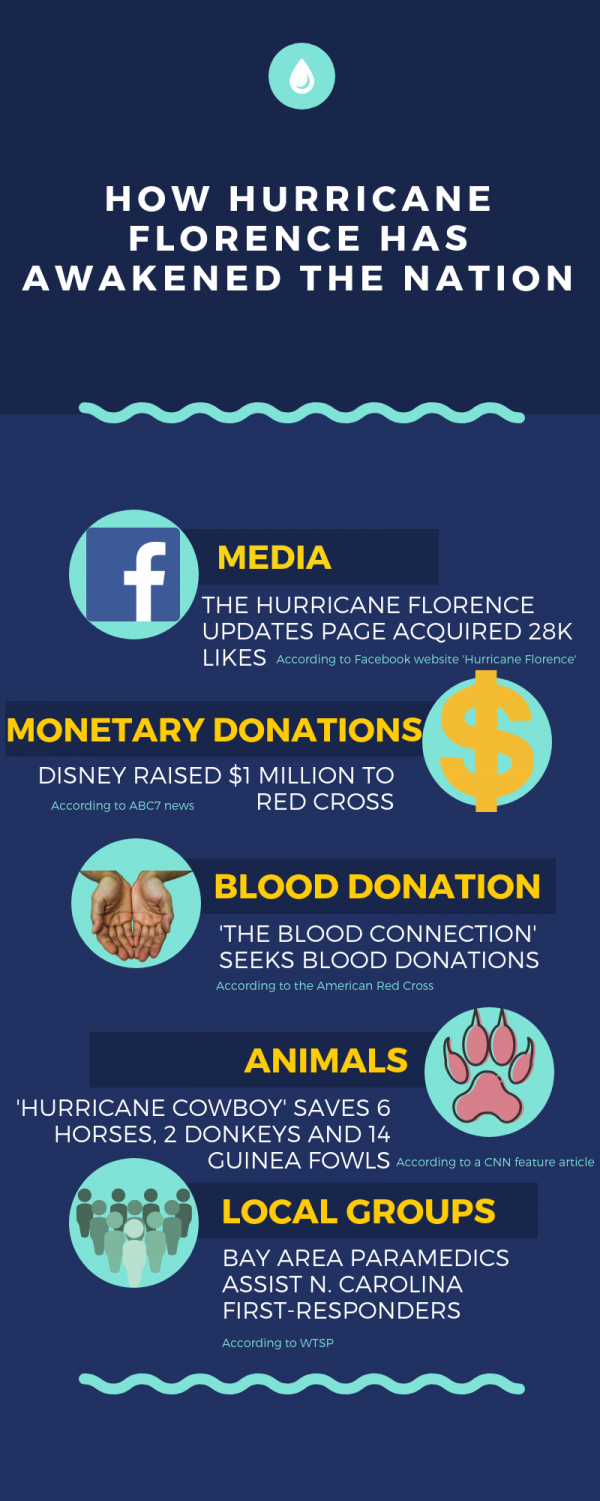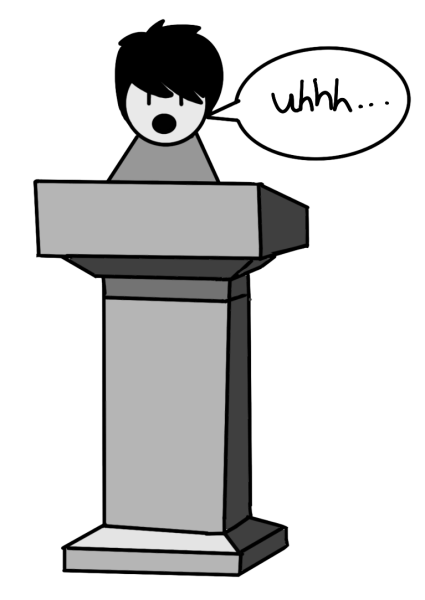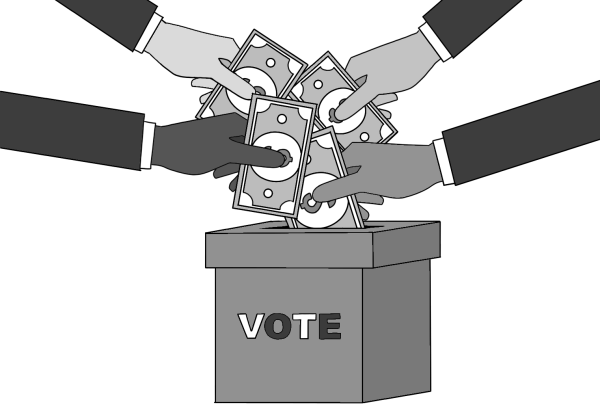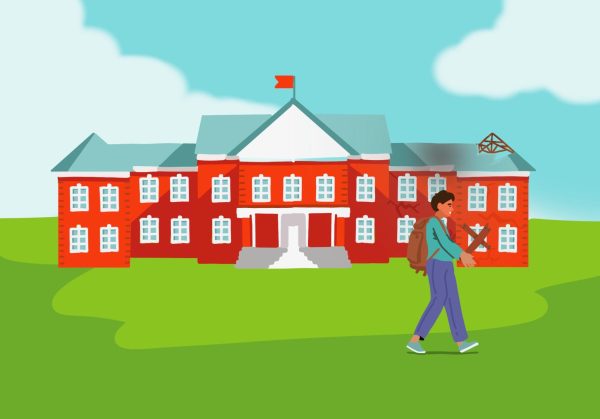The Melodic Line: Hurricane Florence teaches us about empathy

T
he wind whips at 50 miles per hour as building and power lines are demolished into a sea of rising waters. Billowing clouds encircle the aftermath as the storm continues to pound homes to waste. Water levels rise as fatalities continue to climb.
Hurricane Florence, as well as other natural disasters, has invoked solidarity and empathy nationally through the media. Many Americans are able to watch the latest news detailing the storm itself and its impact on homes. Nevertheless, the number of deaths adding up on the big screen can desensitize the viewer to the fact that these fatalities appear surreal.
The weight of these real-life tragedies have unfortunately not carried across the national audience. We have grown numb to the escalating digits of deaths and the frequency of these occurrences. Like school shootings and car accidents, Hurricane Florence is only a reminder that these circumstances are all too common for us to be fully aware of the damage’s extent and the ongoing climate change that often causes natural disasters.
According to a college thesis from the University of Twente in the Netherlands on the effects of individual and group-level empathy on emotion, it is difficult for humans to empathize with large-scale tragedies that do not affect them personally. We as Californians are 2,000 miles away from Hurricane Florence’s impact in the Carolinas. Our sunny days starkly contrast the racing winds and floods of the East Coast. As rain does not come often in California summers, it is difficult for us to empathize with the severity of the hurricane.
In fact, this phenomenon is coded in our genes. According to an article by the Greater Good Science Center in Berkeley, empathy is considered as an on-and-off mindset. We tend to best understand situations that occur close to us — our family, friends or acquaintances. However, as such incidences become out of our proximity, we are prone to unconsciously block this unsettling information from our minds.
The division between what conditions one can or cannot empathize with can be difficult for those who value the notion of empathy. As human beings, our ancestors believed that we are better equipped with familial bonds than national connections. Yet, we do have the power to shape the trend of human empathy.
In addition, according to a teacher who lived in an area affected by the hurricane, Justin Parmenter, the Waddell Language Academy in Charlotte announced closure two days before the arrival of Hurricane Florence. While some parents commended the school’s efforts, several parents condemned the school on social media for inconveniencing families to take care of their children and miss work. Parmenter took his kids to a school that was preparing for sheltering evacuees. Because of this, Parmenter’s children will have learned first-hand from individuals through actions rather than the collective voice of the media.
Like Parmenter, you can connect with local groups that have similar interests. These include volunteering at your community groups, raising awareness through social media and donating unneeded goods to shelters. The more you see the actions of the community and yourself, the more you come to realize the larger-scale aspects of the hurricane’s damage and the families affected.
Furthermore, this also inspires us to have two views of empathy: individual and world-based. Humans are better able to relate to one another on an individual basis than a comprehensive big picture of society. Society is, in essence, less “human” than individuals themselves because of its representation of people as groups mechanically operated by the minds of millions.
Surprisingly, the more we are exposed to actions within small groups of individuals, the more we are able to view the severity of the hurricane’s damage and the impacts on the community in a larger lens, as well as assist with the healing of our nation.
You can help people impacted by Hurricane Florence by visiting redcross.org or texting the word FLORENCE to 90999 to donate $10.







